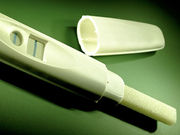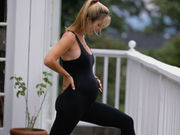Half of U.S. Women Expect to Have Child in the Future
On average, in 2013 to 2015, women expect to have 2.2 children in their lifetime; down from 2002
Olympic Panel Says Strenuous Exercise Safe During Pregnancy
International Olympic Committee finds little evidence exercise prolongs labor or ups premature birth risk
Doctors Better Diagnosticians Than Symptom-Checker Programs
Popular symptom checkers were half as accurate in comparison study
Cryoablation May Be Alternative to Breast Cancer Surgery
Cryoablation appears promising for small tumors in early-stage breast cancer
Calcium Supplements May Be Detrimental to Heart Health
Higher incidence of coronary artery calcification in people who take calcium supplements
SSRI Use During Pregnancy Tied to Speech Issues in Offspring
No link found between SSRI use in pregnancy and risk of motor disorders, poor academic performance
Trends in Dietary Supplement Use Among U.S. Adults Changing
Vitamin D, fish oil, probiotics replacing traditional multivitamins
Copay Assist Programs Creating Problems in Health Care Markets
Despite offering assistance to those who cannot afford meds, programs create broader problems
Exertion, Emotional Upset Can Trigger Myocardial Infarction
On average, AMI over two times more likely in the hour after a bout of intense emotions or activity
Costs of Chemo for Breast Cancer Vary Widely in the United States
Lower-priced options could save patients thousands of dollars, researchers say



















